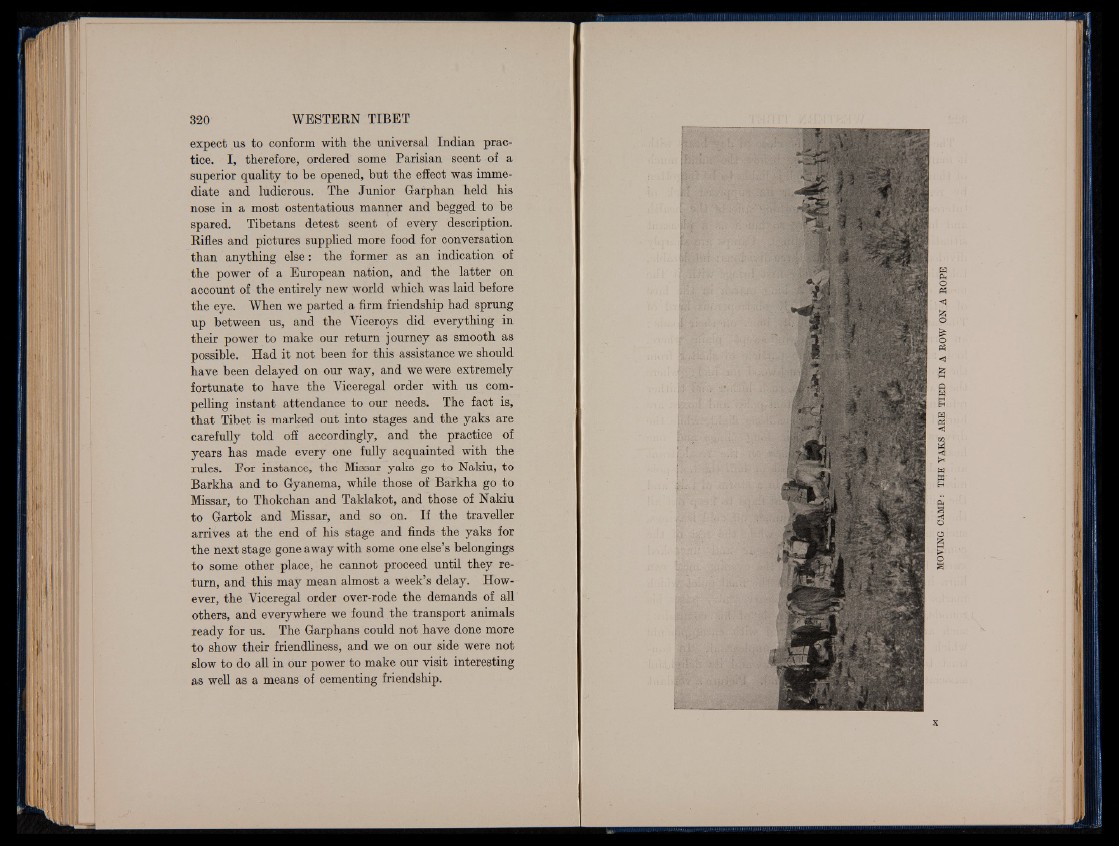
expect us to conform with: the universal Indian practice.
I, therefore, ordered some Parisian scent of a
superior quality to he opened, but the effect was immediate
and ludicrous. The Junior Giarphan held his
nose in a most ostentatious manner and begged to be
spared. Tibetans detest scent of every description.
Rifles and pictures supplied more food for conversation
than anything else: the former as an indication of
the power of a European nation, and the latter on
account of the entirely new world which was laid before
the eye. When we parted a firm friendship had sprung
up between us, and the Viceroys did everything in
their power to make our return journey as smooth as
possible. Had it not been for this assistance we should
have been delayed on our way, and we were extremely
fortunate to have the Viceregal order with us compelling
instant attendance to our needs. The fact is,
that Tibet is marked out into stages and the yaks are
carefully told off accordingly, and the practice of
years has made every one fully acquainted with the
rules. For instance, the Missar yaks go to Nakiu, to
Barkha and to Gyanema, while those of Barkha go to
Missar, to Thokchan and Taklakot, and those of Nakiu
to Gartok and Missar, and so on. If the traveller
arrives at the end of his stage and finds the yaks for
the next stage gone away with some one else’s belongings
to some other place, he cannot proceed until they return,
and this may mean almost a week’s delay. However,
the Viceregal order over-rode the demands of all
others, and everywhere we found the transport animals
ready for us. The Garphans could not have done more
to show their friendliness, and we on our side were not
slow to do all in our power to make our visit interesting
as well as a means of cementing friendship.
MOVING CAMP: THE YAKS ARE TIED IN A ROW ON A ROPE